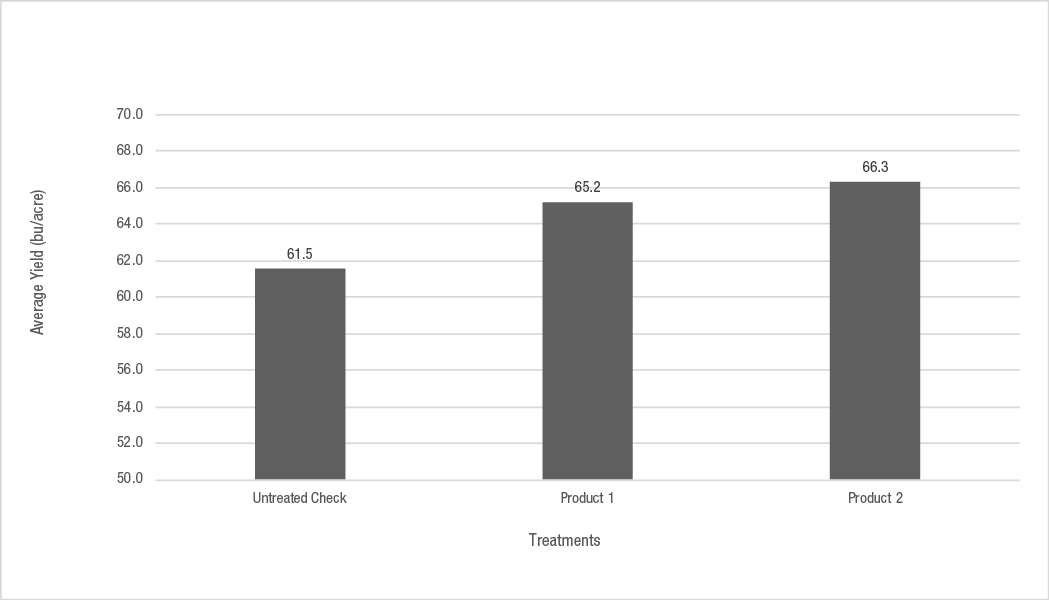TRIAL OBJECTIVE
Previous work at the Bayer Crop Science Learning Center at Monmouth, Illinois has shown little or no benefit from applying in-season foliar feed to soybean in fields without underlying fertility deficits.
After receiving multiple requests to review newer products, a trial was developed to evaluate two foliar feed products in 2020.
RESEARCH SITE DETAILS
| Location | Monmouth, IL | ||
| Soil Type | Silt loam | ||
| Previous Crop | Corn | ||
| Tillage Type | Conventional |
| Planting Date | 05/11/20 | ||
| Harvest Date | 10/13/20 | ||
| Potential Yield (bu/acre) | 70 | ||
| Seeding Rate (seeds/acre) | 130k |
- Treatments consisted of one untreated check and two foliar feed products applied at the R3 growth stage:
- An untreated check was included for comparison.
- Product 1: A solution containing 5% urea-triazone nitrogen, 20% potassium, and 13% sulfur in the potassium thiosulfate (KTS) form applied at 2 qt/acre.
- Product 2: A solution containing 12% slow-release nitrogen and 12% potassium applied at 1 gal/acre.
- The foliar feed applications included a surfactant at 2 fl oz/acre.
- Plots were planted in fields with adequate nutrients, as determined by soil test results.
- There were two replications of each treatment.
- Plots were harvested and adjusted to 13% moisture content.
UNDERSTANDING THE RESULTS
 Figure 1. Yield comparison of two foliar applied fertilizer products to an untreated check. Product 1 was a solution containing 5% urea-triazone nitrogen, 20% potassium, and 13% sulfur in the potassium thiosulfate (KTS) form applied at 2 qt/acre. Product 2 was a solution containing 12% slow-release nitrogen and 12% potassium applied at 1 gal/acre.
Figure 1. Yield comparison of two foliar applied fertilizer products to an untreated check. Product 1 was a solution containing 5% urea-triazone nitrogen, 20% potassium, and 13% sulfur in the potassium thiosulfate (KTS) form applied at 2 qt/acre. Product 2 was a solution containing 12% slow-release nitrogen and 12% potassium applied at 1 gal/acre.
- While yields were not dramatically different in this trial, higher yields were observed with both foliar feed products compared to the untreated check.
- No visual differences were observed in the plots.
KEY LEARNINGS
These results are inconsistent with previous foliar feed trials conducted at the Learning Center. However, the differences in yield observed warrant further study to see if these products can benefit a soybean management system.
Balanced soil fertility is important in any crop production system. It is important to conduct soil tests on a regular interval to evaluate any underlying fertility issues that need to be addressed.
Consult your local Field Sales Representative or Technical Agronomist for tailored recommendations for your farm.
